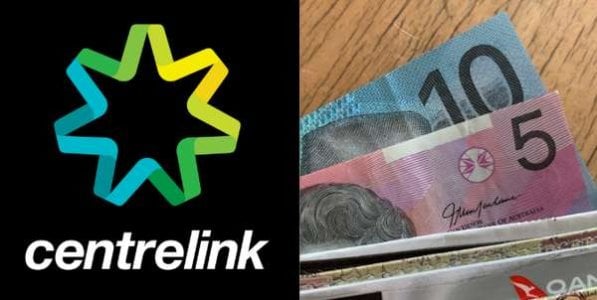Are you getting $1,200 from Centrelink soon? Read this urgent warning now
By
Danielle F.
- Replies 0
As the cost of living continues to rise, many Australians are looking for financial relief.
Centrelink, as the face of Services Australia, has been a cornerstone for providing support to those in need.
However, the promise of support also comes with the risk of exploitation.
Services Australia recently issued a warning about fake claims about 'one-off' cost-of-living payments.
One of the scam's victims, Kate, asked Services Australia if she was eligible for a 'one-off' payment of $1,200.
These fraudulent claims circulating online prey on the most vulnerable members of society, including retirees and seniors.

Fake websites and social media accounts have been luring individuals with the false promise of quick cash, with claims that millions of Australians are eligible for these non-existent payments.
'We haven't made any announcements about any additional "one-off", "bonus", or "cost of living" payments,' Services Australia said in a statement.
Official announcements from Centrelink would be communicated through their verified channels, including Services Australia's official social media accounts.
Services Australia's official website should have a link ending in '.gov.au'.
Seniors may encounter such sites online or be promoted through social media.
Additionally, scammers may promote this scheme through text messages or via email.
Authorities advised Australians not to click any links provided through these messages.
The National Anti-Scam Centre warned Aussies that these could be avenues for scammers to extract personal information.
Scammers may often start by asking for seemingly innocuous details like names or email addresses.
They may even resort to intimidation, threatening immediate arrest, deportation, or other legal action to coerce victims into compliance.
It's important to remember that government organisations, including Centrelink, will never send a text message or email with a link to log onto online services such as myGov.
The Anti-Scam Centre emphasised that this was not an issue exclusive to Centrelink.
Scammers have been known to impersonate trusted businesses, friends, or family members to steal money or personal information.
Some scammers may go as far as impersonating international entities.
These impersonation scams have been a widespread problem that requires constant vigilance from Australians.
Authorities urged everyone to stay informed and cautious about scams circulating online.
Always verify the legitimacy of any unexpected offers or requests for personal information.
Contact the organisation directly using the contact details posted on their official channels.
Protect yourself and your hard-earned money by staying alert to the signs of a scam.
If you have encountered a potential scam or have fallen victim to one, report it immediately to Scamwatch or the Australian Cyber Security Centre.

Have you come across any of these scams? How do you ensure the information you receive about Centrelink payments is legitimate? We would love to hear your experiences in the comments section below. Sharing your experiences can help other community members stay safe and informed.
The SDC forum has a dedicated guide for preventing scams. You may read through ourCybersecurity for Aussies Over 60 modules here.
Centrelink, as the face of Services Australia, has been a cornerstone for providing support to those in need.
However, the promise of support also comes with the risk of exploitation.
Services Australia recently issued a warning about fake claims about 'one-off' cost-of-living payments.
One of the scam's victims, Kate, asked Services Australia if she was eligible for a 'one-off' payment of $1,200.
These fraudulent claims circulating online prey on the most vulnerable members of society, including retirees and seniors.

Centrelink warned Aussies about a new 'one-off' scam circulating online. Image Credits: Wikipedia, Pexels/Miles Burke
Fake websites and social media accounts have been luring individuals with the false promise of quick cash, with claims that millions of Australians are eligible for these non-existent payments.
'We haven't made any announcements about any additional "one-off", "bonus", or "cost of living" payments,' Services Australia said in a statement.
Official announcements from Centrelink would be communicated through their verified channels, including Services Australia's official social media accounts.
Services Australia's official website should have a link ending in '.gov.au'.
Seniors may encounter such sites online or be promoted through social media.
Additionally, scammers may promote this scheme through text messages or via email.
Authorities advised Australians not to click any links provided through these messages.
The National Anti-Scam Centre warned Aussies that these could be avenues for scammers to extract personal information.
Scammers may often start by asking for seemingly innocuous details like names or email addresses.
They may even resort to intimidation, threatening immediate arrest, deportation, or other legal action to coerce victims into compliance.
It's important to remember that government organisations, including Centrelink, will never send a text message or email with a link to log onto online services such as myGov.
The Anti-Scam Centre emphasised that this was not an issue exclusive to Centrelink.
Scammers have been known to impersonate trusted businesses, friends, or family members to steal money or personal information.
Some scammers may go as far as impersonating international entities.
These impersonation scams have been a widespread problem that requires constant vigilance from Australians.
Authorities urged everyone to stay informed and cautious about scams circulating online.
Always verify the legitimacy of any unexpected offers or requests for personal information.
Contact the organisation directly using the contact details posted on their official channels.
Protect yourself and your hard-earned money by staying alert to the signs of a scam.
If you have encountered a potential scam or have fallen victim to one, report it immediately to Scamwatch or the Australian Cyber Security Centre.
Key Takeaways
- Services Australia warned Aussies of online scams offering fake Centrelink payments.
- No official announcements have been made about additional 'one-off', 'bonus', or 'cost of living' payments.
- Official government websites and social media accounts would notify Aussies about changes to their payments or services. Official website links should also end with '.gov.au'.
- Scammers have been using various methods to extract personal information, including fake websites, social media, text messages, and phone calls.
The SDC forum has a dedicated guide for preventing scams. You may read through ourCybersecurity for Aussies Over 60 modules here.







